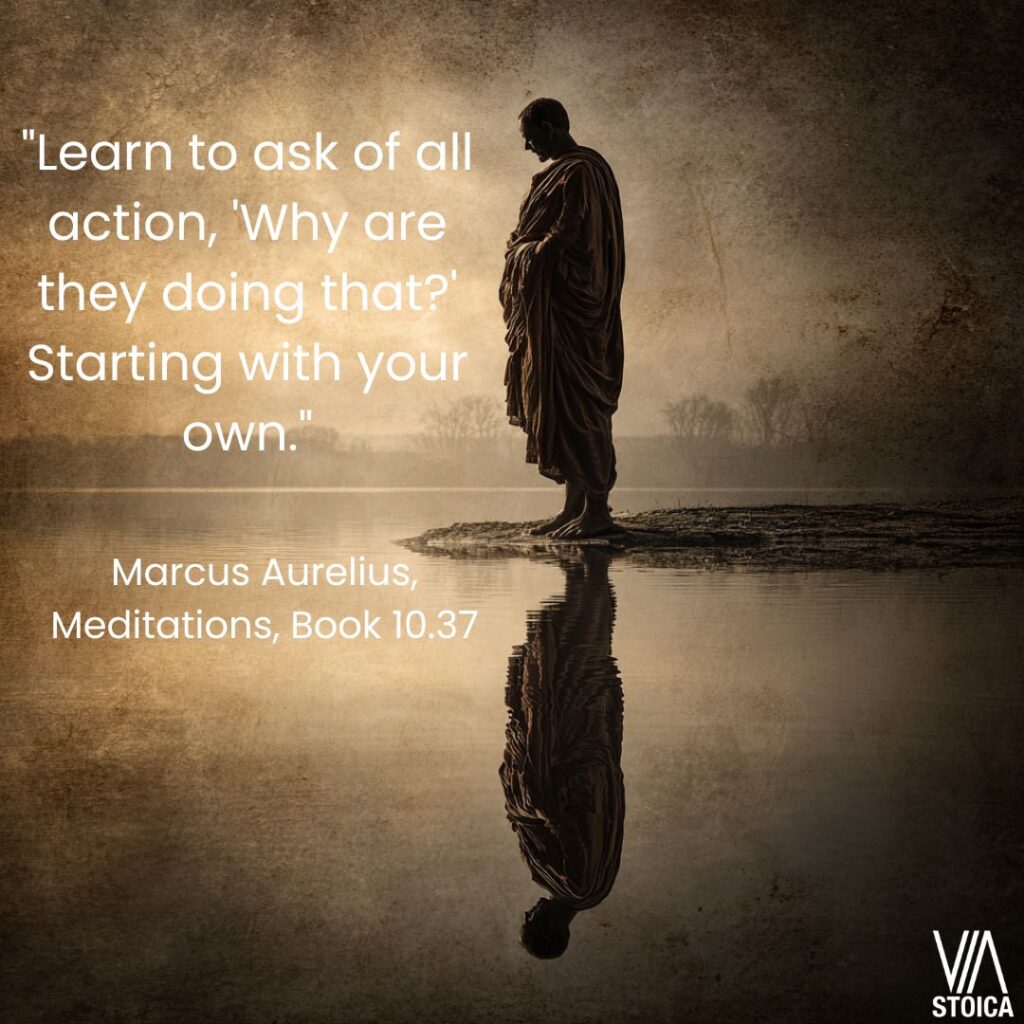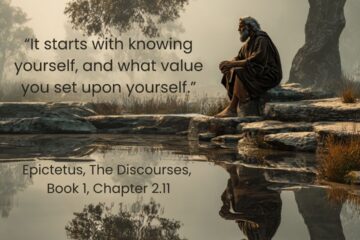
“Learn to ask of all action, ‘Why are they doing that?’ Starting with your own.”
Marcus Aurelius, Meditations, Book 10.37
We tend to judge others and their actions before trying to understand them. Often, we don’t have a clue what we are doing ourselves. We fail to examine our own motives. Marcus Aurelius turns the lens inward first. Before we ask why others act the way they do, we should pause and ask: Why am I doing this?
This is the root of Stoic self-awareness, a skill we cultivate through daily action and reflection. And having our focus on what we are doing instead of what the world around us is doing.
Start with Yourself
In a world where blame is thrown around and distractions cloud intention, this simple practice is revolutionary. Before reacting to a situation, stop and ask: “Why am I reacting like this?” This pause is the beginning of inner clarity.
Stoicism teaches that our judgments, not events, disturb us. By understanding your motives, you start to gain freedom from the knowledge this gives you. You become less reactive and more reflective. The examination itself is a great way to pause.
Practical Ways to Cultivate Stoic Self-Awareness
- Daily Journaling
Each evening, ask yourself: “What did I do today, and why did I do it?” Reflect honestly. Was it driven by ego, fear, or virtue? - Mindful Pauses Before Action
Before sending that email, posting that reply, or making a big decision, pause. Ask the Stoic question: “Why am I doing this?” and “What do I want from this action?” - Turn Judgment into Curiosity
When someone acts in a way that annoys you, replace judgment with inquiry: “Why might they be acting that way?” This disarms anger and builds empathy.
The practice of Stoic self-awareness is not about overthinking but about reclaiming control. You begin to act from curiosity rather than impulse.
FAQ Section
What is Stoic self-awareness?
Stoic self-awareness is the practice of examining your own thoughts and actions to understand your motivations, align them with reason, and live virtuously.
How do Stoics deal with judgment?
Stoics recommend shifting judgment into curiosity, asking why someone acts a certain way, and understanding that only your response is within your control.
Why is self-reflection important in Stoicism?
Self-reflection helps you recognize harmful impulses, clarify your values, and act according to nature and reason, which are central goals in Stoicism.
Want to explore more Stoic strategies?
Book a free consultation with one of our Stoic Coaches or read more on the Marcus Aurelius Quotes page. You can also listen to the Via Stoica podcast on Spotify or Apple Podcasts or watch it on YouTube.


0 Comments